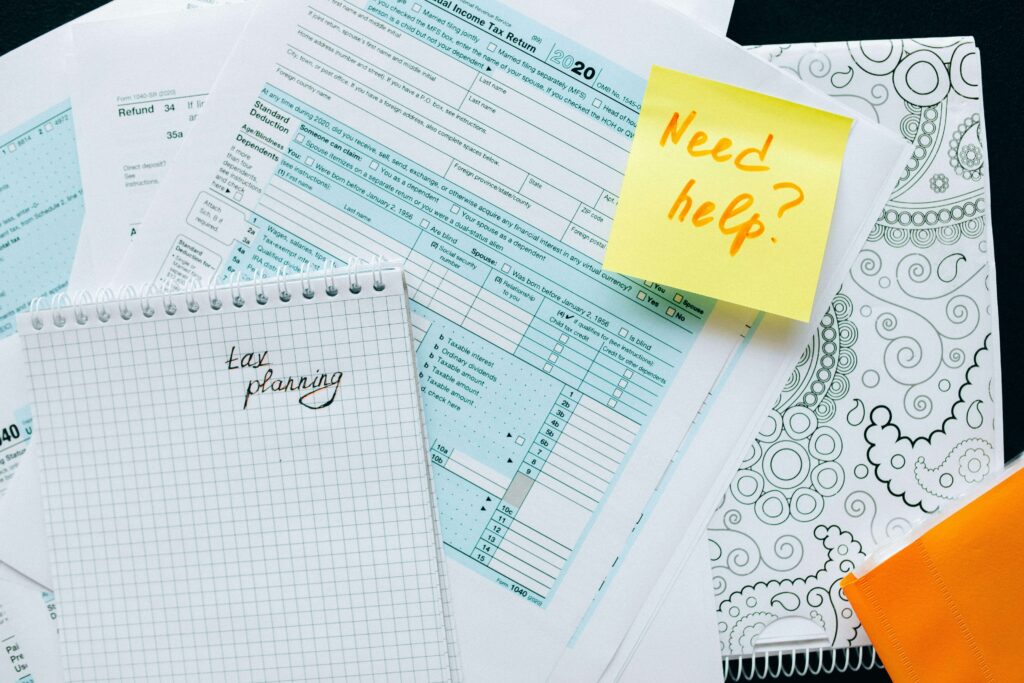Top 10 Mistakes to Avoid When Managing Your Finances
Introduction:

Are you looking for ways to manage your finances more effectively? Do you feel like you’re struggling to get ahead financially? You’re not alone! Many people struggle with understanding and managing their finances. Fortunately, there are some simple steps you can take to help you get on the right track. In this blog, we’ll discuss ten common mistakes people make when managing their finances and how to avoid them. By avoiding these mistakes, you’ll be well on your way to financial success. So, let’s get started!
No matter how old you are, it’s essential to be mindful of the common money mistakes that could put you in a financial bind. From overspending to not budgeting, these errors can have long-term consequences if left unchecked. To stay afloat financially, it’s important to know what pitfalls to avoid. Here are 10 money mistakes to be aware of:
1. Not Having A Fund For Unexpected Costs
We get it: it’s hard to save money that you can use in an emergency when everything seems so expensive. But you never know when you’ll need money quickly. Having an emergency fund can take a lot of stress out of your life when it comes to money. To do this, try to save enough money to cover your bills for three to six months. So, you’ll have a cushion that will help you get back on your feet if bad times come up out of the blue.
2. Spending More Than You Make
Too many people spend more than they make. Maybe you just can’t stop having dinner or lunch at a place. Or maybe you give in to the lure of “retail therapy” too often. But if you spend more than you make, you run out of money and can’t save any. This could put you in a lot of debt. Set up a budget and find a way to stick to it to stop doing this.
3. Using Credit Cards Too Much
Millions of Americans owe so much on credit cards that they can’t pay their bills. Don’t try to join them. Most of the time, the interest rates on credit card loans are high. When credit card bills are piling up, it’s hard to stay afloat, let alone move forward financially. So, don’t use a credit card unless you plan to pay off the full balance every month. So, you can build up your credit history and take advantage of any perks your card may offer without getting too deep into debt.
4. Not Getting Insurance Or Getting Too Little
If you’re young and healthy, you might think that spending money on health insurance is a waste. Or, maybe you drive an older car and don’t think it needs much protection from your auto insurance. But it’s never a good idea to skip or cut back on insurance. Just in case something bad happens, you need a good insurance policy. Without health insurance, you might have to pay thousands of dollars in medical bills if you get a sudden diagnosis. Or, if you cause a car crash that leaves someone seriously hurt, you could be sued for a lot of money. If you don’t have good car insurance, you’ll be responsible for those costs. So, make sure you have good protection. Plan for the worst, but keep your fingers crossed.
5. Being A Victim Of Lifestyle Creep
As you get better at your job and make more money, you might spend more. We call this “lifestyle creep.” You might move from generic to brand-name versions of the same things. Or maybe you often buy things you don’t need because you think you “deserve” them. Lifestyle creep can make it hard to reach your money goals without you realizing it. Sticking to a budget and investing your extra savings is much better than losing money. Stopping lifestyle creep can pay off in a big way in the long run.
6. Buying Completely New Cars
Who wouldn’t want to buy a brand-new car with its fresh-off-the-line smell, shiny body, and top-of-the-line features? New cars lose a lot of value as soon as you drive them off the lot, though. Instead, think about buying a certified pre-owned car that someone else hired or that a car rental company used. So, you can get a reliable car with better technology without having to go through the car’s biggest drop in value.
7. Putting Too Much Money Into Your House
During and right after the COVID-19 pandemic’s peak, home prices went through the roof. Even in places that used to be cheap, owning a home became a dream for many people very quickly. You might feel like you should just pay for what you want. But spending too much on a home is likely to make you feel bad about it. So, it might be best to wait until the market cools down or until you find a home that meets your needs and wants but costs less. Don’t forget that only fools rush in.
8. Investing Too Safely
The standard advice for buyers is that they shouldn’t put all of their money in one place. Consider the recent cryptocurrency craze and crash as an example of how important it is to keep track of your risks. But that doesn’t mean you should never take a chance. In fact, riskier investments like stocks can give a high return on investment, which is hard to get without taking some risk. You can lower the risk by doing things like diversifying your assets and remembering that investing is a marathon, not a sprint. If you aren’t sure how to do this, you might want to talk to a financial adviser.
9. Spending Your Home Wealth On Things That Aren’t Important
Refinancing your home is often a good idea, especially if you took out a mortgage with a high-interest rate and can now get a cheaper rate. But it’s never a good idea to refinance just to get cash for things like a pricey trip that aren’t important. It can be smart to use the wealth in your home, but only if you do it for the right reasons. Again, if you’re not sure if this move is right for you and your situation, talk to a financial adviser.
10. Putting Off Retirement Savings
A Bankrate.com survey found that Americans’ biggest money regret is not saving more for retirement. That’s why you should start putting money away in a 401(k) as soon as you get a job and keep putting money away until you start your golden years. If you’re lucky, your company will match some of your 401(k) contributions, which will help you save even more. Starting to save for retirement at a young age can make the difference between working for the rest of your life and having the time and money to enjoy life as a senior.
Conclusion:
In conclusion, managing your finances is a skill that requires careful attention, thoughtful planning, and dedication. It is important to be aware of your options, set realistic goals, and stay organized in order to ensure that your finances are in good shape. Additionally, avoiding common financial mistakes can help you stay on track and reach your financial goals. By avoiding these top 10 mistakes to avoid when managing your finances, you can help ensure your financial success.










